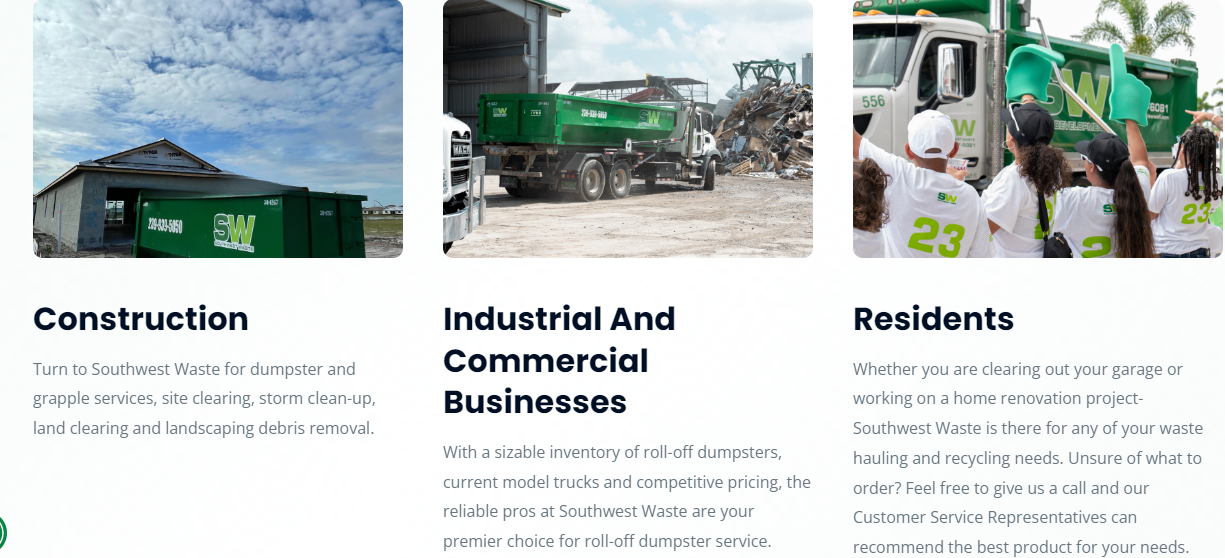In a world increasingly focused on sustainability, eco-friendly waste hauling has emerged as a vital service that addresses both waste management and environmental concerns. This guide explores the importance of eco-friendly waste hauling, the various methods used, benefits, and how businesses and individuals can adopt these practices to minimize their ecological footprint.
Understanding Eco-Friendly Waste Hauling
Eco-friendly waste hauling refers to the collection, transportation, and disposal of waste in a manner that minimizes environmental impact. This involves using sustainable practices and technologies that reduce waste generation, promote recycling, and support responsible disposal methods.
The Need for Eco-Friendly Practices
The rise of consumerism and rapid urbanization has led to an increase in waste generation. Traditional waste management methods often contribute to landfill overflow, pollution, and resource depletion. Eco-friendly waste hauling addresses these issues by promoting sustainable waste management practices that can help protect our planet for future generations.
Key Principles of Eco-Friendly Waste Hauling
1. Waste Reduction
The first step in eco-friendly waste hauling is reducing the amount of waste generated. This can be achieved through:
- Source Reduction: Encouraging businesses and individuals to minimize waste at the source by making informed choices about products and packaging.
- Educating the Public: Raising awareness about the importance of reducing waste through community programs and initiatives.
2. Recycling and Composting
Recycling and composting are essential components of eco-friendly waste hauling. They help divert materials from landfills and promote resource recovery.
- Recycling: Materials such as paper, glass, metals, and plastics can be recycled and repurposed into new products. This conserves natural resources and reduces the need for new materials.
- Composting: Organic waste, including food scraps and yard waste, can be composted to create nutrient-rich soil. Composting reduces landfill waste and supports soil health.
3. Responsible Disposal
When waste cannot be reduced, recycled, or composted, responsible disposal methods must be employed. This includes:
- Hazardous Waste Management: Proper handling and disposal of hazardous materials, such as chemicals and electronics, to prevent environmental contamination.
- Landfill Alternatives: Exploring alternatives to traditional landfills, such as waste-to-energy facilities, which convert waste into energy while reducing landfill use.
Benefits of Eco-Friendly Waste Hauling
1. Environmental Protection
One of the most significant benefits of eco-friendly waste hauling is its positive impact on the environment. By reducing waste, promoting recycling, and ensuring responsible disposal, eco-friendly practices help protect natural resources and ecosystems.
2. Cost Savings
While implementing eco-friendly waste hauling practices may involve initial investments, the long-term savings can be substantial. Reducing waste generation can lower disposal costs, and recycling can generate revenue from the sale of recyclable materials.
3. Enhanced Public Image
Businesses that adopt eco-friendly waste hauling practices can enhance their reputation and attract environmentally conscious consumers. Demonstrating a commitment to sustainability can differentiate a company in a competitive market.
4. Compliance with Regulations
Many local and state regulations are increasingly focused on sustainability and waste reduction. By adopting eco-friendly waste hauling practices, businesses can ensure compliance with these regulations and avoid potential fines.
How to Implement Eco-Friendly Waste Hauling Practices
1. Conduct a Waste Audit
Before implementing eco-friendly waste hauling practices, businesses should conduct a waste audit to understand their waste generation patterns. This involves analyzing the types and quantities of waste produced to identify opportunities for reduction and recycling.
2. Develop a Waste Management Plan
Based on the results of the waste audit, organizations should develop a comprehensive waste management plan. This plan should outline specific goals for waste reduction, recycling, and responsible disposal, along with strategies for achieving these goals.
3. Partner with Eco-Friendly Waste Hauling Companies
Choosing a waste hauling provider that prioritizes eco-friendly practices is essential. Look for companies that offer recycling services, use fuel-efficient vehicles, and employ responsible disposal methods. Verify their certifications and commitment to sustainability.
4. Educate Employees and Stakeholders
Educating employees and stakeholders about eco-friendly waste hauling practices is crucial for successful implementation. Conduct training sessions and provide resources to raise awareness and encourage participation in sustainability initiatives.
5. Monitor and Evaluate Progress
Regularly monitor and evaluate the effectiveness of eco-friendly waste hauling practices. Track waste generation, recycling rates, and compliance with the waste management plan. Adjust strategies as needed to improve results and achieve sustainability goals.
Challenges in Eco-Friendly Waste Hauling
1. Initial Costs
While eco-friendly waste hauling can save money in the long run, there may be initial costs associated with implementing sustainable practices. Businesses may need to invest in recycling bins, composting systems, or partnerships with eco-friendly waste haulers.
2. Limited Infrastructure
In some areas, the infrastructure for recycling and composting may be limited, making it challenging to implement eco-friendly waste hauling practices. Advocacy for better local waste management services can help address this issue.
3. Contamination of Recyclables
Improper sorting of waste can lead to contamination of recyclable materials, making them unsuitable for recycling. Education and awareness campaigns can help reduce contamination rates.
The Future of Eco-Friendly Waste Hauling
The future of eco-friendly waste hauling looks promising, with growing awareness and demand for sustainable practices. Innovations in waste management technologies, such as advanced recycling methods and waste-to-energy solutions, will continue to evolve, making eco-friendly waste hauling more efficient and effective.
Embracing Circular Economy Principles
As society shifts toward a circular economy, eco-friendly waste hauling will play a pivotal role in resource recovery and waste reduction. This approach focuses on keeping materials in use for as long as possible, minimizing waste, and promoting sustainability.
Conclusion
Eco-friendly waste hauling is not just a trend; it’s a necessary shift towards sustainable waste management that benefits both the environment and businesses. By understanding the principles of eco-friendly waste hauling, recognizing its benefits, and implementing effective practices, businesses and individuals can contribute to a healthier planet.
For more information on adopting sustainable waste management practices, consider exploring options for eco-friendly waste hauling.
